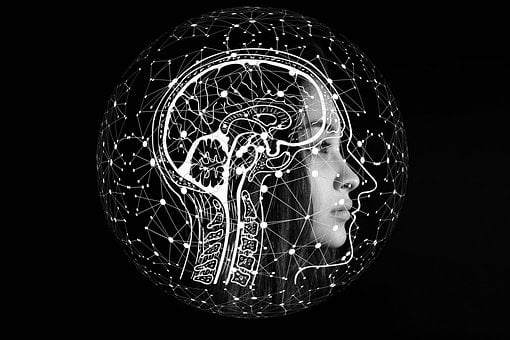Artificial Intelligence (AI) has the potential to revolutionize the way mental illness is diagnosed and treated. By using data and machine learning algorithms, AI can help mental health professionals understand the underlying causes of mental illness and identify patterns and markers that may indicate the presence of a mental illness. This can help health professionals identify patients who are at risk of developing a mental illness and intervene early, before symptoms become severe. Additionally, AI can also be used to analyze data from various sources such as social media, text messages and speech patterns to identify early signs of mental health issues, allowing professionals to reach out to patients who may not have otherwise sought help.

AI can also be used to personalize treatment plans for patients with mental illness. By analyzing data from a patient's medical history and treatment response, AI algorithms can identify the most effective treatment options for that individual. For example, by analyzing data from a patient's medical history and treatment response, an AI algorithm can identify the most effective medication or therapy for that patient. This can help reduce the trial-and-error approach that is often used in mental health treatment and lead to more efficient and effective care. Additionally, AI can also be used to monitor patient's treatment progress and make adjustments as necessary, ensuring that the patient receives the best possible care.
Another area where AI is showing promise is in the development of chatbots and virtual assistants for mental health support. These digital tools can provide patients with 24/7 access to mental health resources, including information about their condition, self-help techniques, and links to support groups. They can also provide a safe and anonymous space for patients to talk about their feelings and concerns. Chatbots can also be designed to mimic human conversation, allowing patients to feel more comfortable and at ease while discussing their mental health. Furthermore, these chatbots can also track patient's progress over time and provide tailored support accordingly, making it easier for patients to manage their mental health on their own.
AI can also be used to improve the efficiency of mental health professionals. By analyzing large amounts of data, AI algorithms can help identify patterns and markers that may indicate the presence of a mental illness. This can help mental health professionals to make more accurate diagnoses and provide more effective treatments. Furthermore, AI can also be used to help mental health professionals to keep track of patient's progress and make adjustments as necessary, ensuring that the patient receives the best possible care. Additionally, AI can also be used to help mental health professionals to manage their workloads more efficiently, allowing them to see more patients in a shorter amount of time.
While AI has the potential to transform mental health care, it is important to note that the technology is still in its early stages and more research is needed to fully understand its capabilities and limitations. It's also important to ensure that the technology is developed and used in an ethical and responsible manner, and that patients' privacy and data security are protected. It's also important that AI is integrated in a way that complements and enhances the work of human mental health professionals, rather than replacing them.
In conclusion, AI has the potential to significantly improve the way mental illness is diagnosed and treated. By analyzing data and identifying patterns, AI can lead to more accurate diagnoses, more effective treatments and better outcomes for patients. Additionally, AI can also be used to improve the efficiency of mental health professionals, allowing them to see more patients in a shorter amount of time. However, it's important to remember that the technology is still in its early stages and more research is needed to fully understand its capabilities and limitations. Furthermore, it is important to ensure that the technology is developed and used in an ethical and responsible manner, and that patients' privacy and data security are protected.




You must be logged in to post a comment.